- Category
- War in Ukraine
Leaked Wagner Files Expose Group’s Direct Ties to the Kremlin
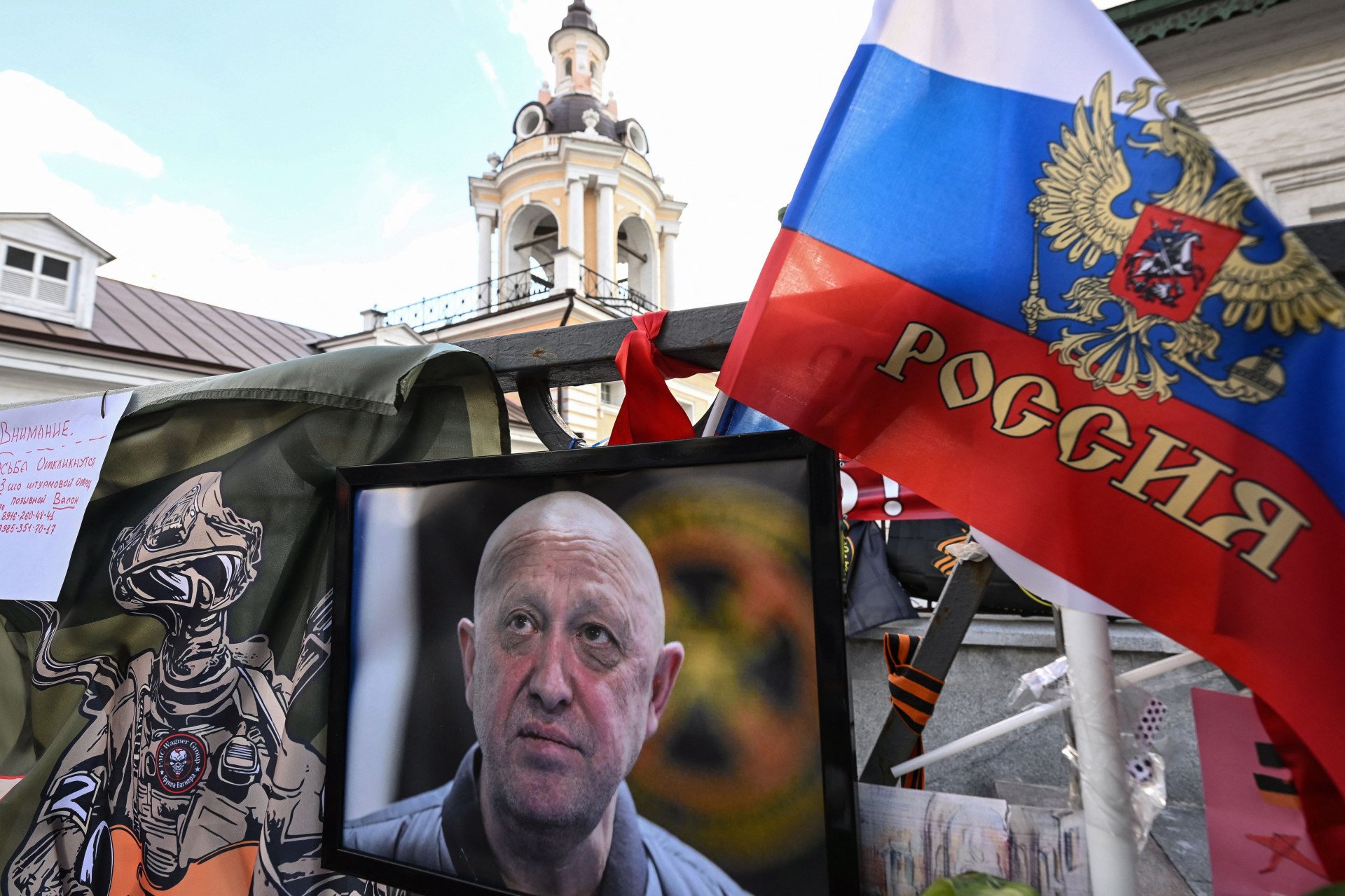
Through their research, Ben Dalton and Candace Rondeaux at New America’s Future Frontlines program, uncovered a trove of leaked documents, encrypted conversations, and emails tied to the Wagner Group, spanning several years. Their findings reveal direct links between Wagner and the Kremlin.
In our Zoom interview, we delve deeper into one of the most critical yet secretive elements of Russia's military strategy—quasi-state actors like Wagner. Unlike traditional private military companies (PMCs) such as Blackwater, Wagner is an irregular formation at the forefront of Russia’s foreign policy. It provides Moscow with the flexibility to expand its influence across Ukraine, Syria, and Africa, all while maintaining plausible deniability.
Wagner’s willingness to cross moral and legal lines, employing various forms of violence—including sexual violence—aligns with the Kremlin’s morally ambiguous approach to expanding its influence abroad. The group is often used to provide security services for military juntas, dictatorships, and warlords, and to carry out some of the toughest missions in Ukraine. Through Wagner, Russia exploits the power vacuums created by civil wars, armed conflicts, and the absence of former colonial powers in the West, filling the void with a combination of military force and covert operations.
In exchange for the security and control Wagner provides, Russian state-owned businesses acquire exclusive rights to extract valuable resources in these resource-rich regions, generating a significant revenue stream for the Kremlin.
This network circumvents international sanctions and embargoes, fueling Russia’s economy and contributing billions annually to its war chest for Ukraine. Additionally, Russia’s state-owned weapons manufacturers leverage Wagner’s operations to send their products to restricted entities, easing the effects on Russia’s economy.
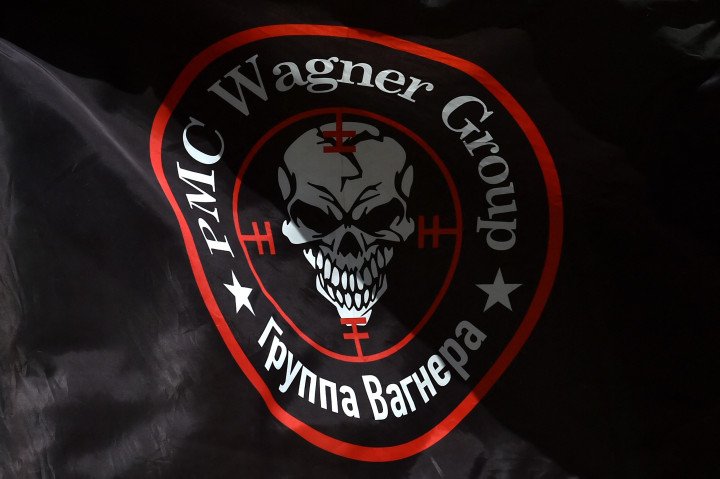
Unblurring the lines
What we’re seeing now is a shift in how Wagner operates. New America’s research, based on over a year of analyzing leaked internal documents from 2014 to 2022, including the late mercenary leader Yevgeny Prigozhin’s electronic calendar, paints a picture of an organization once infamous for its shadowy practices, now brought into the light. The research reveals just how deeply Wagner is integrated with Russia’s military and state power.
The evidence shows that Wagner is far more than a private contractor—it functions like a Russian military brigade, with direct links to the Kremlin. Candace Rondeaux, Senior Director at New America’s Future Frontlines, explains that Wagner was formed in the mold of a Russian airborne assault brigade, with its structure, capabilities, and internal terminology mirroring that of Russia's military.
Many Wagner leaders refer to it as a “brigade,” a key detail that has significant implications for international law and accountability for war crimes. The data also reveals that Wagner’s leadership has been in constant communication with high-level Russian officials—specifically from the Ministry of Defense and even the president’s office. This deep coordination makes it clear: that Wagner is not independent; it is an extension of Russia’s military power.
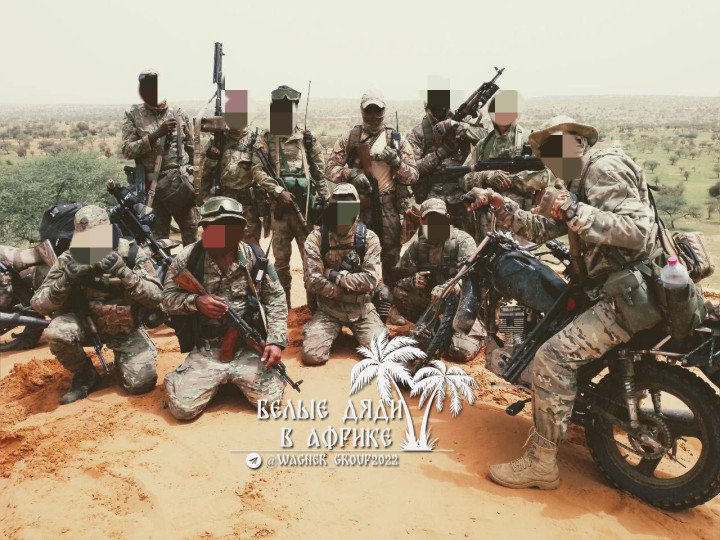
The Africa Corps: Continuity, not change
One of the most telling parts of the research is the formation of the Africa Corps, which has gained a lot of attention recently. This new initiative might seem like a shift in Wagner’s operations, but in reality, it reflects continuity. Wagner has been active in Africa for years, involved in securing resources and providing military support to client states in exchange for access to gold, diamonds, and oil. What’s new is the visibility of Wagner’s operations through the Africa Corps.
This isn’t just about the physical presence of Wagner in Africa; it’s about how they’re helping Russia build and sustain a covert economy that bypasses Western sanctions. Africa has become a key region for Russia to secure resources and weapons, which, in turn, fund the war in Ukraine. As Rondeaux explained, “Wagner’s operations in Africa have been integral in ensuring that Russia can continue to operate despite the sanctions that have crippled its economy.”
Through the Africa Corps, Wagner continues to be a crucial player in maintaining Russia’s presence on the global stage, especially in resource-rich areas where governments are willing to partner with Russia in exchange for military support. In return, these countries, like Mali and the Central African Republic, receive security services that allow them to fend off insurgencies and maintain control, often with Wagner’s assistance.
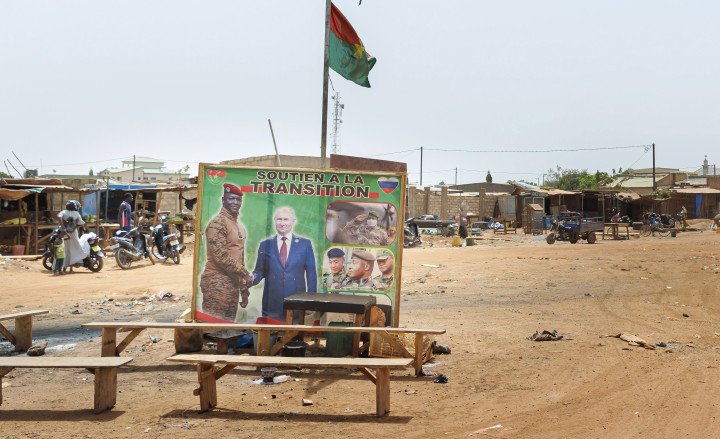
Sanctions and the Russia-Africa connection
One of the critical roles Wagner plays in Africa—and globally—is in helping Russia evade sanctions. As sanctions have increased over the years, especially following Russia’s occupation of Crimea and the invasion of Ukraine, Wagner has become an important tool for circumventing international restrictions. The sale of arms, particularly to unstable states in Africa, has been a way for Russia to maintain its military and economic influence while bypassing Western financial systems.
Wagner’s operations in Africa are part of a larger strategy where Russia targets countries with weak governance and ongoing conflict, creating mutually dependent relationships where Russia’s economic interests align with these governments’ security needs. As Ben Dalton, Program Manager at New America’s Future Frontlines, put it, “Russia excels in states that are unstable or weak.” The group provides the security these governments need, in exchange for access to their resources, ensuring Russia's foothold on the continent grows stronger.
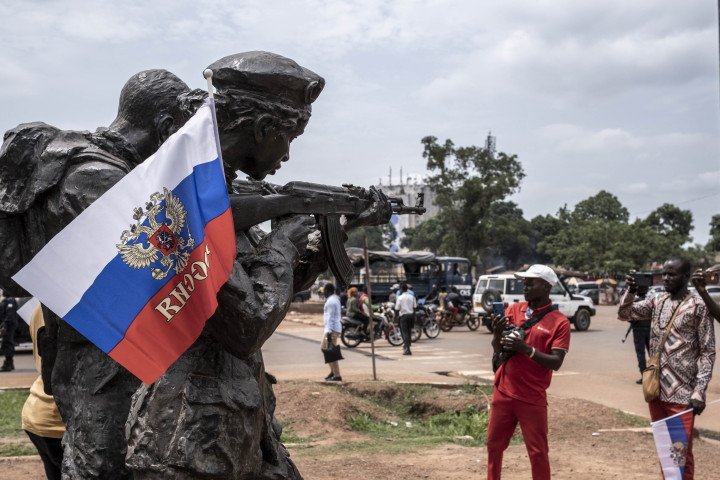
The gold trade and resource extraction
Another key element of Wagner’s role in Africa is its involvement in the gold trade. The group helps facilitate the extraction of gold, which is then funneled into Russia’s economy. This trade is essential for funding Russia’s war efforts in Ukraine. The gold coming out of countries like Mali and Sudan helps Russia build its gold reserves, which can be used to stabilize its economy, says Rondeaux. The profits from this resource trade flow back to the Kremlin, strengthening Russia’s financial position amid crippling international sanctions.
The United Arab Emirates plays a crucial role in this process as an intermediary, helping to process and refine the gold for export. The gold trade provides a lifeline for Russia, helping the government sidestep the impact of sanctions while keeping the war machine running. The level of coordination between Wagner, Russian officials, and African governments shows how intertwined the group’s operations are with Russia’s state power.
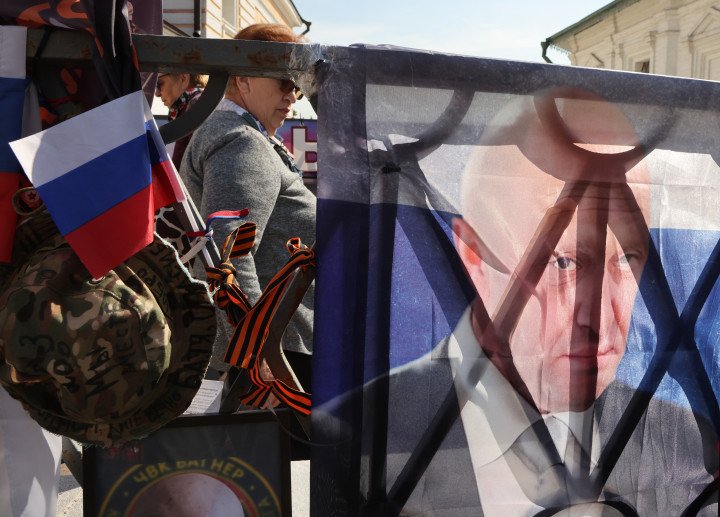
Wagner’s ongoing role after Prigozhin
Even after the death of Prigozhin, Wagner continues to play a pivotal role in Russia’s military strategy. The leadership of Wagner has been reorganized, and key figures like Andrei Ivanov, previously linked to the GRU (Russia's military intelligence), have taken over. While Prigozhin’s death marked a significant shift in leadership, the group’s operations remain essentially unchanged. The group is still involved in securing resources and providing military services in Africa, as well as supporting Russia’s ongoing war in Ukraine.
The shift in leadership has also marked a change in the way Wagner is deployed. As Rondeaux mentioned, “Wagner is now on a tighter leash, under the direct control of Russia’s Ministry of Defense,” signaling that Wagner’s actions are more closely aligned with Russian military objectives. The Africa Corps, under Ivanov’s leadership, continues to be a key part of this strategy, with the group playing a central role in resource extraction and maintaining Russia’s security interests across Africa.
As Dalton pointed out, “We need to stop thinking about these groups on their terms. Wagner has always had a huge propaganda arm, and much of the information we get about them comes through their self-serving media channels. That’s why it’s crucial to have access to data they didn’t purposely release, as it reveals the actual structure of what’s going on, not just the narrative they want to spin. Their goal has always been to muddy the waters, keeping things murky and ambiguous to maintain the strategic space they need to operate.”
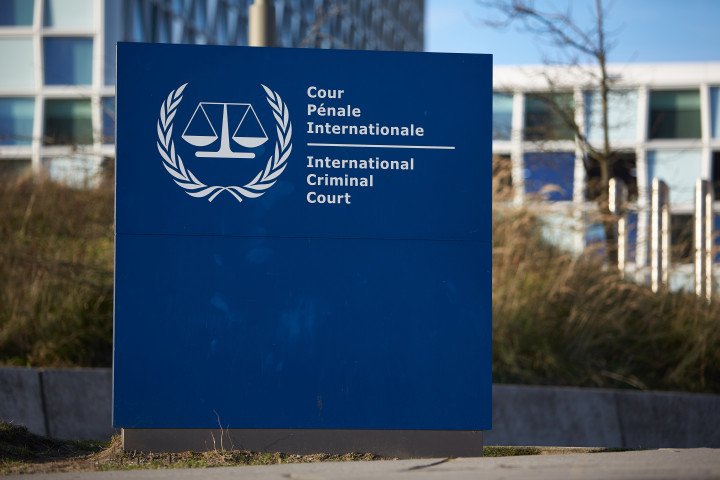
The call for accountability
Wagner’s activities have not gone unnoticed on the international stage, particularly by the International Criminal Court (ICC). The group’s involvement in war crimes, atrocities, and resource exploitation is raising alarms, as the Wagner model may become a blueprint for other countries. The evidence linking the Kremlin to Wagner’s operations highlights the clear path to their incrimination.
The research conducted by Future Frontlines will be crucial for international investigations into Wagner’s actions, particularly in Ukraine, Syria, and African countries. The group’s operations persist in these regions, and as long as there are resource-rich countries to exploit and international laws to circumvent, there will be a market for groups like Wagner. A tribunal must send a message to aspiring war criminals.
With the growing media attention on Wagner, there is increasing support for the International Criminal Court (ICC) to consider prosecuting its personnel as state actors. This would recognize Wagner not just as a private entity but as an extension of Russian state power, implicating the Russian government in the group’s alleged crimes. Such a legal framework could begin to dismantle the ambiguity that allows these irregular formations to operate with impunity.

-35249c104385ca158fb62273fbd31476.jpg)


-554f0711f15a880af68b2550a739eee4.jpg)



-206008aed5f329e86c52788e3e423f23.jpg)